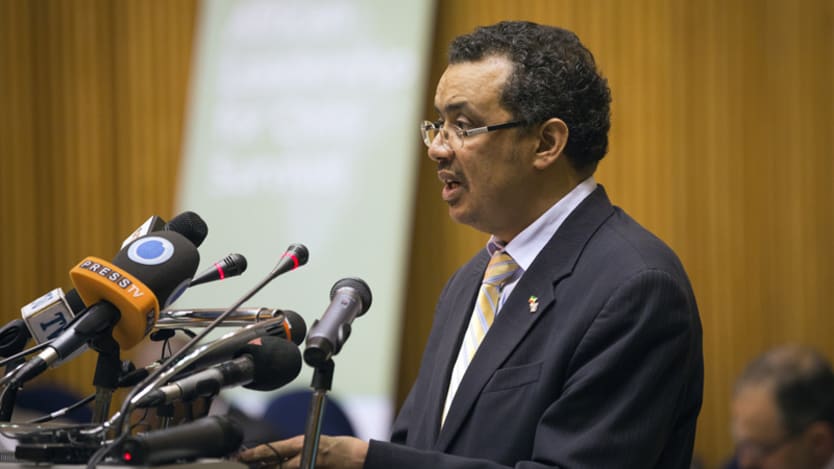
Tedros Adhanom Ghebreyesus, the new director-general of the World Health Organization, has called on governments to stop dragging their heels and making excuses, and to “walk the walk” when it comes to achieving global universal health coverage.
Tedros, who was elected to the top WHO position in May, said that achieving “health for all” should be put front and center in all development efforts since “if there is no health, there is nothing.” His remarks came during the final session of the European Development Days summit in Brussels.
The former minister of health for Ethiopia said “there is no excuse” when it comes to instituting universal health coverage in all countries — something the WHO has been committed to since it was established in 1948. But he also promised the WHO would be on hand to help with the process.
“To achieve universal health care is possible … so let’s stop the excuse,” he said. “It’s time to walk the walk. But we know how to do it, many countries have already done it, and there is no excuse that we cannot achieve universal health coverage.”
See more Devex coverage of the European Development Days:
► Mimica says EU must do better on monitoring of development projects
► EU signs new consensus on development amid NGO outcry
► Private sector, migration, Brexit and climate change loom over the EDD
He added that the WHO is “ready to articulate this very well and help countries to achieve the universal health coverage that we have promised for almost 70 years now.”
Target 3.8 in the Sustainable Development Goals refers specifically to UHC and calls for access to “quality essential health-care services and access to safe, effective, quality and affordable essential medicines and vaccines for all.” The WHO estimates that at least 400 million people globally lack access to one or more essential health services.
During his speech to an audience of political, business and civil society representatives gathered for the 11th annual EDD, Tedros explained that health should be central to aid discussions for two reasons. First, because it is a “rights issue and [so] an end in itself,” but also because it is fundamental to economic development and prosperity.
“If everyone is healthy, then we can talk about everything else, be it employment … or changing our climate,” he said. “But I think health comes first.”
Tedros — whose election concluded a year-long process that saw all WHO member countries voting for the next leader for the first time in the U.N. agency’s history — said that achieving health for all would require strong political commitment to both of these definitions of health.
The WHO can help by demonstrating how countries can build the strong health systems needed to implement UHC, which involves compiling, benchmarking, sharing and tailoring best practices from other countries, he said. And then also supporting countries to implement and manage those health systems, and ultimately roll out UHC.
However, Tedros said nations do not have to do it all at once. Some can try a more gradual approach by starting with offering free primary health care, which can “give confidence” to countries, and then scale up from there, he said.
“You may not need to start UHC with all services, start with primary health care … initially free services could be focused on women … pregnancy and child until the age of 5.” he said. “You can start small and then grow your services as you go along.”
Read more international development news online, and subscribe to The Development Newswire to receive the latest from the world’s leading donors and decision-makers — emailed to you free every business day.








